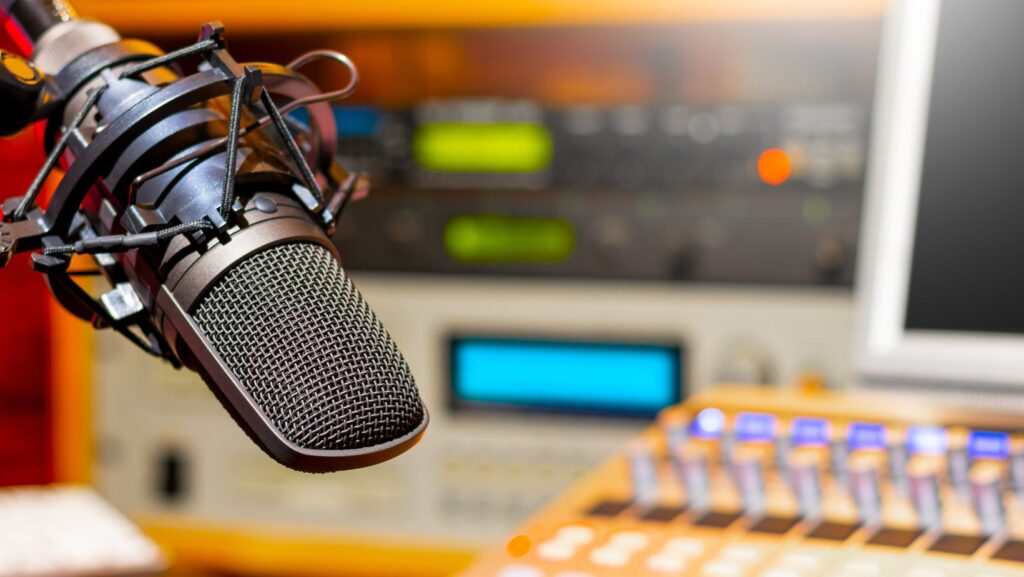Radio broadcasting has been a significant source of news and information for decades. It reaches broad audiences, providing them with updates on current events and insights through unbiased reporting.
However, the delivery of impartial radio broadcasting news comes with its challenges. In this post, we will explore these challenges and the impact they have on journalists and listeners alike.
Ethics in Journalism: An Uphill Battle
Unbiased reporting has always been the cornerstone of journalism. Nonetheless, achieving this ideal is no easy task in today’s media landscape. Radio journalists face a myriad of ethical dilemmas that put their commitment to impartiality to the test.
Balance: Giving Everyone a Voice
One challenge faced by radio broadcasters is striking the right balance between different perspectives. With competing ideologies prevalent in society, it is crucial for journalists to include various viewpoints without favoring one over another.
However, obtaining viewpoints that diverge from mainstream beliefs can be burdensome. Sourcing out speakers or experts who represent these views requires careful research and persistence.
Politics in News Coverage: Potential Compromises
The entry of politics into news coverage poses another significant challenge for radio broadcasters striving to deliver unbiased content. Political pressure or external influences can jeopardize journalists’ efforts to present objective stories.

Political interference may come in various forms: direct censorship, manipulated news reports, or biased framing. This interference prompts self-censorship or forced narratives that go against ethical journalistic principles.
Corporate Influence: A Threat to Independence
In an increasingly corporatized media industry, dwindling resources and financial pressures threaten independent journalism on the radio. Large conglomerates often own multiple media outlets with differing political alignments.
As a result, journalists may face corporate pressure to conform to certain narratives that align with an outlet’s agenda or advertiser interests rather than providing an impartial representation of information.
Social Media Integration: Accuracy Vs Virality
The integration of social media platforms into radio broadcasts presents both opportunities and challenges. While social media allows journalists to access a broad spectrum of voices and stories, it also presents hurdles for fact-checking and the spread of misinformation.
Checking the credibility of sources, verifying facts, and distinguishing reality from online rumors can be time-consuming. This challenge is exacerbated by the need to deliver news quickly in a fast-paced media environment where capturing public attention is essential.
Objective Reporting in an Echo Chamber Era
The prevalence of echo chambers poses substantive challenges to unbiased news delivery. Filter bubbles formed through algorithms tailor content based on users’ preferences, leading to reduced exposure to differing opinions and counterarguments.
When listeners live within these echo chambers, radio broadcasters face significant obstacles in disseminating unbiased information without being ridiculed or dismissed by those unwilling to engage with alternative perspectives.
Building Trust in a Skeptical Audience
The question of trust is essential for radio broadcasters striving to maintain impartiality. It is no secret that public confidence in mainstream media has eroded over time. Radio broadcasters must continually work towards regaining audience trust through transparency and accountability.

Journalists can achieve this by regularly citing credible sources, taking responsibility for factual errors or biases when they occur, engaging with feedback from listeners, and providing opportunities for open dialogue about their reporting methods.
Navigating Misinformation: Fact-Checking Challenges
One prominent challenge facing journalists delivering unbiased news in radio broadcasting is countering the rampant spread of misinformation. Misleading information thrives on various platforms such as blogs, social media networks, and clickbait websites that circulate potentially harmful narratives purposely distorted for personal or political gains.
Fact-checking plays a crucial role in verifying information accuracy; however, it may require considerable time and expertise. In addition, debunking false information once it reaches an audience who already believes it can be an uphill battle. Henceforth, radio journalists should prioritize the dissemination of accurate information to prevent these issues from requiring extensive containment protocols post-publication
Conclusion
Radio broadcasting has always been an influential medium for delivering unbiased news to the public. However, news outlets continuously face numerous challenges that test their journalistic integrity. Radio broadcasters must overcome obstacles to maintain an impartial delivery of news in the digital age by balancing viewpoints, navigating political pressures, countering corporate influence, and combating misinformation.
With sustained efforts to uphold ethical standards, empower audiences with accurate information, and embrace transparency, radio broadcasting can continue to be a reliable source amid the complexities and challenges of maintaining unbiased journalism.
